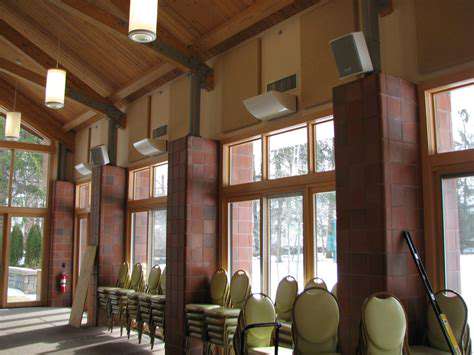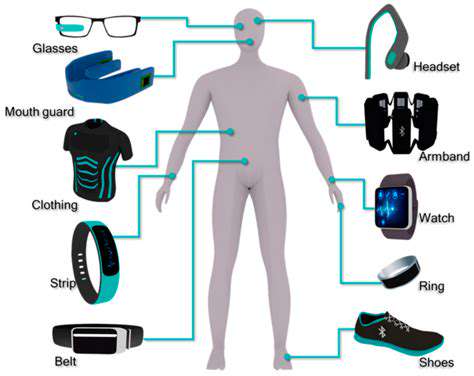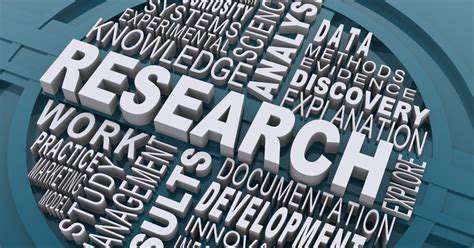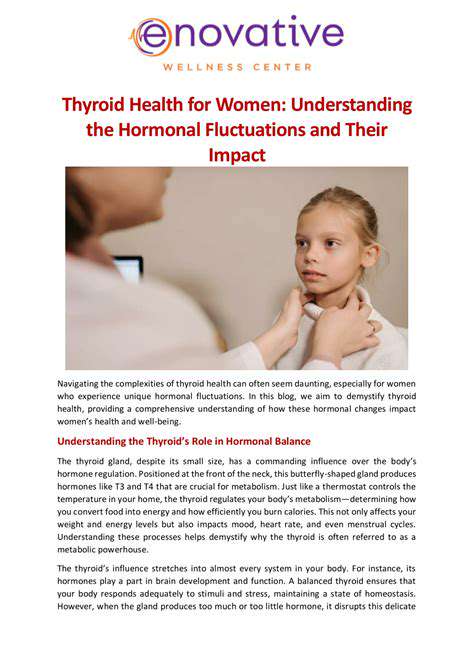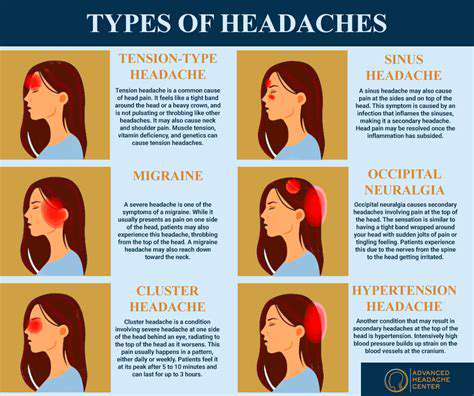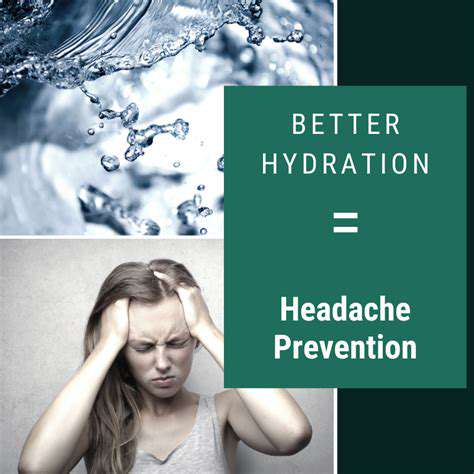Navigating Migraine Triggers During Holidays and Celebrations
Dietary Changes and Holiday Feasts
Festive tables groan under unusual food combinations that rarely appear at other times. The sudden influx of processed meats, aged cheeses, and sugary treats creates minefields for sensitive individuals. Blood sugar rollercoasters from irregular eating patterns compound the problem, turning what should be joyful meals into potential triggers.
Strategic eating makes all the difference. Packing healthy snacks prevents desperate grabs for whatever's available. Drinking water between alcoholic beverages maintains hydration. Most importantly, listening to your body's signals helps avoid dietary regret later.
Sleep Disruptions and Time Zone Changes
Holiday travel wreaks havoc on biological rhythms. Whether it's cross-country flights or late-night gatherings, sleep patterns suffer. The brain interprets these disruptions as threats, sometimes responding with pounding headaches. Missing just two hours of rest can lower migraine thresholds significantly.
Defending sleep quality requires preparation. Travelers should gradually adjust bedtimes before trips. Essential items include eye masks for bright hotel rooms and white noise apps for unfamiliar environments. Remember: no holiday event merits next-day suffering from exhaustion.
Changes in Routine and Social Interactions
Our brains thrive on predictability. When holiday chaos replaces normal schedules, neurological systems protest. Unexpected social demands - from chatty relatives to crowded parties - can overwhelm sensitive individuals. These disruptions alter blood flow patterns in ways that may trigger headaches.
Sensory Overload and Bright Lights
Festive decorations create visual cacophonies that delight most but distress some. Flashing lights, overpowering perfumes, and constant background noise form a sensory assault. For migraine-prone individuals, these stimuli can directly activate pain pathways, transforming celebration into suffering.
Creating escape plans helps manage overwhelming environments. Identifying quiet spaces beforehand allows necessary breaks. Carrying earplugs and blue-light blocking glasses provides portable protection against sensory triggers.
Alcohol and Caffeine Consumption
Toasting with champagne or staying alert with extra coffee seems harmless but carries risks. These substances affect blood vessel diameter and brain chemistry in ways that may provoke headaches. The dehydration they cause compounds the problem, especially when combined with rich foods.
Moderation remains key, but alternatives exist. Sparkling water with lime satisfies the toast ritual without consequences. Herbal teas provide warmth without caffeine spikes. Remember: no drink merits next-day misery.
Strategies for Preventing Holiday Migraine Attacks
Planning Ahead: Proactive Measures
Successful migraine prevention begins before the first decoration goes up. Recognizing personal triggers allows creation of customized defense plans. This might involve pre-holiday conversations with family about expectations or scheduling mandatory downtime between events.
The most effective strategy involves treating self-care as non-negotiable, not as an afterthought. Blocking calendar time for rest prevents overcommitment. Carrying emergency medication ensures preparedness when prevention fails.
Dietary Considerations: Fueling Your Body for Success
Navigating holiday tables requires strategy. Before parties, eating balanced meals prevents desperate hunger leading to poor choices. Identifying personal food triggers allows selective avoidance rather than complete deprivation.
Hydration plays an underrated role. Alternating alcoholic drinks with water prevents dehydration headaches. Bringing a healthy dish to share guarantees at least one safe option. Remember: no single meal warrants days of suffering.
Stress Management Techniques: Finding Your Inner Peace
When holiday chaos escalates, having practiced relaxation methods pays dividends. Brief body scans during bathroom breaks release accumulated tension. Portable stress-relief tools - whether breathing apps or acupressure rings - provide discreet support in overwhelming situations.
The most powerful tool may be permission to decline invitations. Protecting health sometimes means missing events, and that's perfectly acceptable. Quality matters more than quantity when it comes to holiday participation.
Sleep Hygiene: Prioritizing Rest and Recovery
Maintaining sleep quality during disruptions requires creativity. Travelers should bring familiar pillows and sleep aids. Using blue-light filters on devices prevents melatonin disruption from late-night screen time.
Strategic napping can compensate for lost sleep, but timing matters. Brief early afternoon rests refresh without affecting nighttime sleep. Remember: well-rested guests enjoy gatherings far more than exhausted ones.
Managing Stress and Maintaining Routine
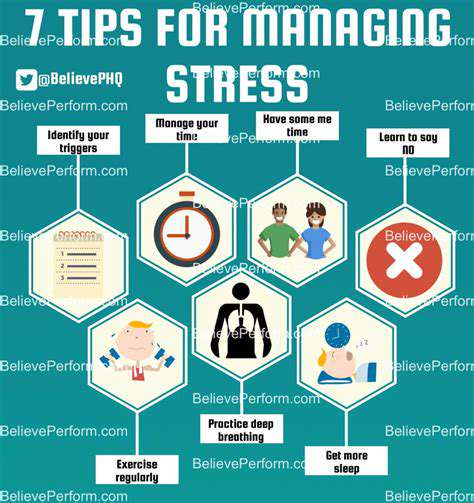
Understanding the Sources of Stress
Modern holiday stress stems from unrealistic expectations as much as actual obligations. The gap between Instagram-perfect fantasies and messy reality creates unnecessary pressure. Identifying these mental traps allows for more reasonable standards.
Internal stressors often prove more damaging than external ones. Perfectionism about decorations or gifts creates self-imposed suffering. Recognizing these patterns is the first step toward healthier celebrations.
Effective Stress Management Techniques
Mini-meditations offer powerful relief in hectic moments. Even thirty seconds of focused breathing while waiting in line can reset stress levels. The 5-4-3-2-1 grounding technique (noticing five sights, four sounds, etc.) quickly brings overwhelmed minds back to the present.
Time management revolutionizes holiday preparation. Breaking tasks into fifteen-minute chunks makes them manageable. Setting phone reminders prevents last-minute panic. Remember: small, consistent efforts prevent overwhelming crunches.
The Importance of Self-Care
Self-care during holidays isn't selfish - it's survival. Scheduling daily me time, even just ten minutes with tea and a book, maintains emotional reserves. Treating personal needs as seriously as others' expectations prevents resentment and burnout.
Physical care forms the foundation. Regular movement, whether walking or stretching, releases tension. Nutritious snacks maintain energy better than sugar crashes. Remember: you can't pour from an empty cup.
Building a Support System
Vulnerability strengthens connections. Sharing holiday struggles often reveals others feel similarly. Creating reciprocal support networks makes burdens lighter - perhaps neighbors can share meal prep or childcare.
Professional support helps when stress becomes unmanageable. Therapists offer coping strategies tailored to holiday challenges. Remember: seeking help demonstrates strength, not weakness.
Seeking Professional Help When Needed
When holiday stress triggers physical symptoms like persistent headaches, medical advice becomes essential. Preventive medication strategies can make the difference between suffering and enjoyment.
Mental health professionals offer crisis strategies for overwhelming moments. Their objective perspective helps identify solvable problems versus unrealistic expectations. Remember: temporary support can prevent long-term consequences.
Communicating Your Needs and Seeking Support
Understanding Your Migraine Triggers
Personal trigger identification requires detective work. Tracking attacks alongside potential causes in a dedicated notebook reveals patterns. Over time, clear connections emerge between specific foods, situations, and headache onset.
Recognizing Stress as a Trigger
Stress manifests physically before we notice it mentally. Early signs like jaw clenching or shoulder tension warn of impending headaches. Recognizing these signals allows preemptive action before pain begins.
Dietary Factors and Their Role in Migraine
Common dietary triggers share chemical similarities. Substances like tyramine (in aged cheeses) or nitrates (in processed meats) affect blood vessels similarly. Understanding these connections explains why seemingly unrelated foods might trigger attacks.
Environmental Factors and Migraine Sensitivity
Weather changes affect intracranial pressure, explaining why some predict storms via headaches. Fluorescent lighting's imperceptible flicker can irritate sensitive nervous systems. Recognizing these subtle triggers allows for better environmental control.
Seeking Support from Healthcare Professionals
Headache specialists differentiate between migraine types, ensuring proper treatment. Their knowledge of emerging therapies provides options when standard approaches fail. Regular consultations adjust strategies as needs change.
Connecting with Support Groups and Resources
Online communities share practical tips beyond medical advice. Members exchange real-world solutions for holiday challenges, from quiet spaces at parties to travel-friendly ice packs. This collective wisdom supplements professional guidance.
Developing Healthy Coping Mechanisms
Consistent routines anchor sensitive nervous systems. Regular sleep, meals, and exercise stabilize the body's systems, raising migraine thresholds. These habits create resilience against unavoidable triggers.

